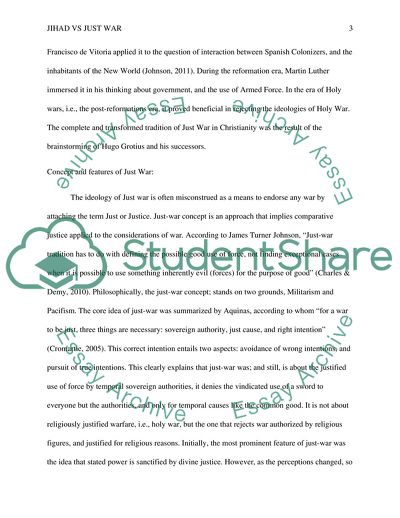Cite this document
(Comparison between Jihad in Islam and Just War in Christianity Coursework, n.d.)
Comparison between Jihad in Islam and Just War in Christianity Coursework. https://studentshare.org/religion-and-theology/1778213-jihad-in-islam-vs-just-war-in-christianity
Comparison between Jihad in Islam and Just War in Christianity Coursework. https://studentshare.org/religion-and-theology/1778213-jihad-in-islam-vs-just-war-in-christianity
(Comparison Between Jihad in Islam and Just War in Christianity Coursework)
Comparison Between Jihad in Islam and Just War in Christianity Coursework. https://studentshare.org/religion-and-theology/1778213-jihad-in-islam-vs-just-war-in-christianity.
Comparison Between Jihad in Islam and Just War in Christianity Coursework. https://studentshare.org/religion-and-theology/1778213-jihad-in-islam-vs-just-war-in-christianity.
“Comparison Between Jihad in Islam and Just War in Christianity Coursework”. https://studentshare.org/religion-and-theology/1778213-jihad-in-islam-vs-just-war-in-christianity.


